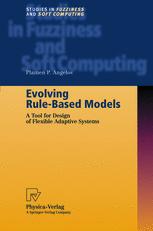

Most ebook files are in PDF format, so you can easily read them using various software such as Foxit Reader or directly on the Google Chrome browser.
Some ebook files are released by publishers in other formats such as .awz, .mobi, .epub, .fb2, etc. You may need to install specific software to read these formats on mobile/PC, such as Calibre.
Please read the tutorial at this link: https://ebookbell.com/faq
We offer FREE conversion to the popular formats you request; however, this may take some time. Therefore, right after payment, please email us, and we will try to provide the service as quickly as possible.
For some exceptional file formats or broken links (if any), please refrain from opening any disputes. Instead, email us first, and we will try to assist within a maximum of 6 hours.
EbookBell Team

4.1
40 reviewsThe objects of modelling and control change due to dynamical characteristics, fault development or simply ageing. There is a need to up-date models inheriting useful structure and parameter information. The book gives an original solution to this problem with a number of examples. It treats an original approach to on-line adaptation of rule-based models and systems described by such models. It combines the benefits of fuzzy rule-based models suitable for the description of highly complex systems with the original recursive, non iterative technique of model evolution without necessarily using genetic algorithms, thus avoiding computational burden making possible real-time industrial applications. Potential applications range from autonomous systems, on-line fault detection and diagnosis, performance analysis to evolving (self-learning) intelligent decision support systems.